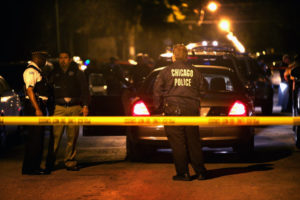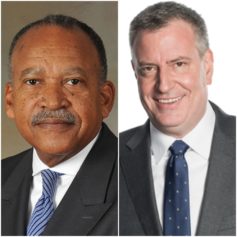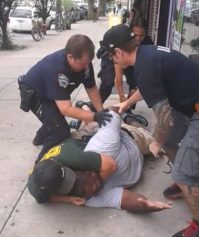
The recent police killings have sparked protests around the country about police using excessive force. The proposal in Chicago aims to remove the controversial maneuver from their city’s law enforcement options on apprehending suspects.
Despite being banned by most police departments, the chokehold is not illegal.
“The general order that the Chicago police department currently has does not use the term ‘chokehold,’” Chicago Alderman of the 14th Ward, Edward Burke, said.
The precautionary ban on chokeholds might not be enough to actually prevent them from happening. Case in point: New York has had plenty of chokehold incidents even though they had already banned the use of it.
The New York City Police Department issued a ban on chokeholds in 1993 after the 1991 death of Federico Pereira, a 21-year-old Queens man. Four of the five officers had their charges dropped in the Pereira incident, and the other was acquitted.
The 2014 New York City Civilian Complaint Review Board’s (CCRB) report “A Mutated Rule: Lack of Enforcement in the Face of Persistent Chokehold Complaints in New York City” says the chokehold isn’t illegal, but they are “unambiguously prohibited by Department policy.”
From July 2013 through June 2014, the CCRB received 219 chokehold complaints, the highest since a period from 2006 through 2010 when they received 200 complaints per year.
Even though New York City Mayor Bill de Blasio said that he prefers the use of chokeholds to be a department policy matter, New York City Council members have submitted their own proposal against the use of chokeholds. Their proposal does not include law enforcement outside the department and has yet to go to a vote.
Alderman of Chicago’s 34th Ward, Carrie Austin, said she wants to assure the public that what happened to Garner, won’t happen in their city.
“I believe it puts our police officers and law enforcement on notice that this is a tactic that will not be accepted in our city,” she told the Chicago Tribune. “They can use additional tools in their toolbox of Tasers and anything else that would render that individual submissive besides a chokehold, which in our opinion (is) deadly force.”
Arthur Lurigio, a criminal justice professor at the University of Chicago, said that difficulty recognizing a chokehold will create legal challenges for criminalizing them. He said that the intention of the officer, along with the appearance and duration of a hold, could be difficult to determine.
“In a struggle in real time, things are going to transpire that may give the appearance of being a chokehold,” Lurigio told Reuters. “This is going to be a challenge for them then to elevate that to a crime.”
Burke said the ban is not only going to apply to police officers, but also to security guards, private detectives and other law enforcement agencies that take people into custody.
“Chicago should be a no choke city,” Burke added.
Chicago Mayor Rahm Emanuel has yet to speak on the proposal. At the earliest, the proposal would be voted on by a full City Council in January.

